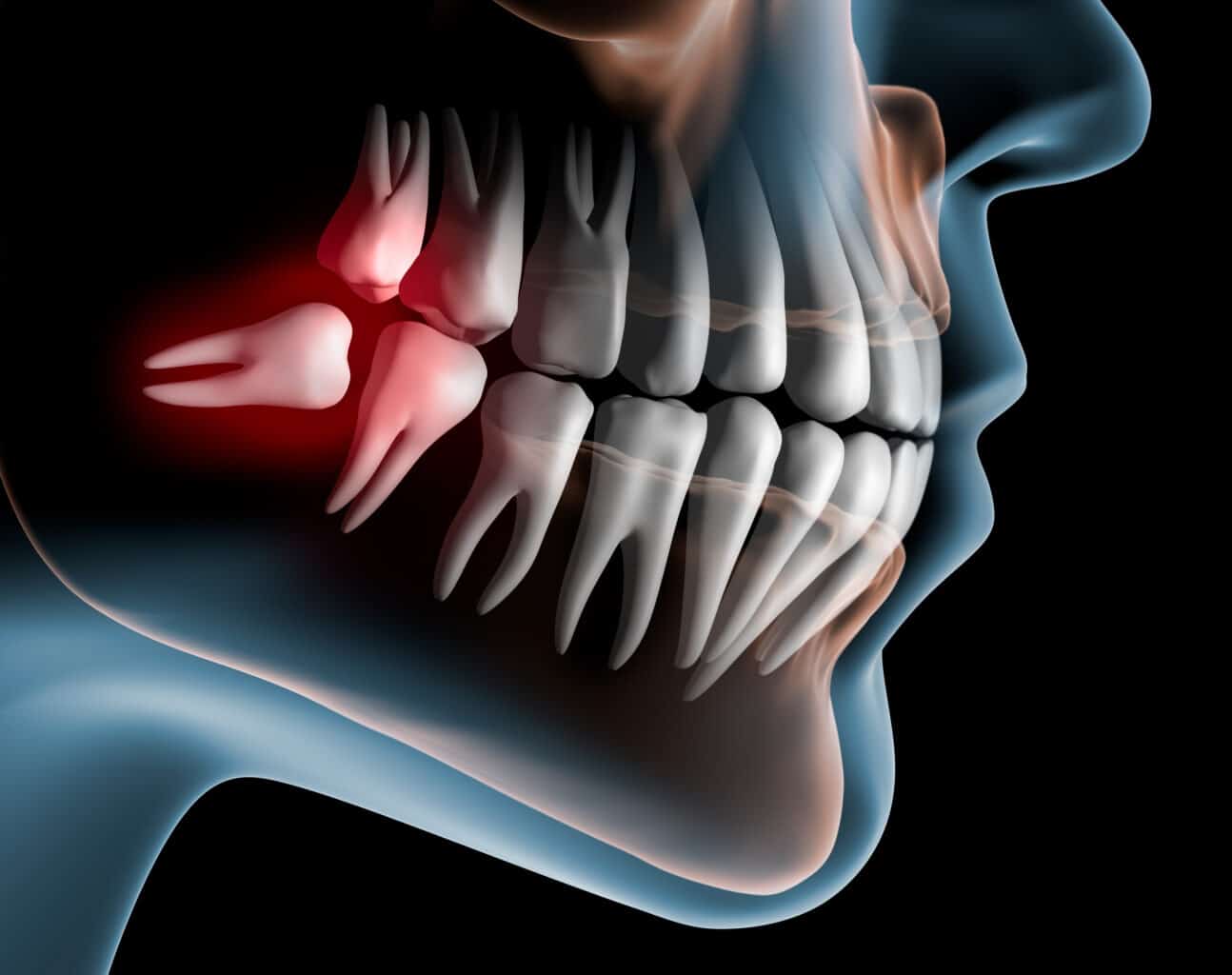When is the best time to remove wisdom teeth? Well, that entirely depends on your situation. For some people, their wisdom teeth will never cause any problems. These lucky individuals have four more molars that grow in perfectly acceptable to complete their adult teeth. But for most, saying goodbye to their wisdom teeth is a preventive measure to avoid uncomfortable and painful complications. Sometimes, wisdom teeth grow in at problematic angles that can lead them to be trapped within your jaw. This creates an environment that can cause infections or cysts that can wreak havoc on your bone support and teeth roots.
Ascent Dental, a dentist in Cherry Creek, Denver, has years of wisdom teeth removal experience and can answer any questions you may have. But before elaborating on when to remove wisdom teeth, let’s start by looking at when they come in.

When do wisdom teeth come in?
Typically, wisdom teeth start to come in between the ages of 17 and 25. Even though they may not erupt until early adulthood, the formation of wisdom teeth begins much earlier—between the ages of 7 to 10.
There are common signs that your wisdom teeth are making their way through your gums, which include:
- Bleeding or tender gums
- Swelling of the gums or the jaw
- Jaw pain
- An unpleasant taste in the mouth or bad breath
- Difficulty opening your mouth
Though not as commonly reported, headaches and gum infections are also experienced. If that is the case for you, consider it a good indicator that you need to schedule an appointment with your dentist.
Wisdom teeth often don’t have enough room to grow, which is why they create problems for many people. The reasons for wisdom tooth removal include:
- Wisdom teeth become impacted within your jaw
Sometimes, wisdom teeth grow in at problematic angles that can lead to the teeth to be trapped within your jaw. This creates an environment that can cause infections or cysts that can wreak havoc on your bone support and teeth roots.
- Wisdom teeth partially emerge and become a magnet for bacteria.
When a wisdom tooth is only partially visible through the gums, it creates a passageway for bacteria. Because these teeth are hard to reach during everyday cleaning, the likelihood of infection is very high.
- Crowd nearby teeth.
Without proper space to grow, wisdom teeth can damage and crowd other teeth that can change your smile’s alignment.
From infections to teeth crowding, taking them out is a way to avoid the complications caused by the extra molars. If your wisdom teeth don’t cause any problems and are growing in the right position, then you have nothing to worry about.
In any event, it’s a good idea to call your dentist about wisdom teeth and ask if you need to get them removed. Here at Ascent Dental, we have years of experience with wisdom tooth removal. Our dental practice in Denver, Colorado, is always accepting new patients. Contact us today with your questions about wisdom tooth removal or set up an appointment; Ascent Dental is here to help.
